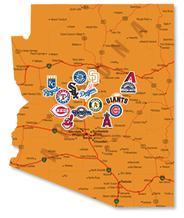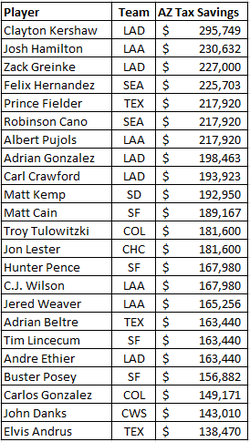
“Jock Tax” Overview
Like all US citizens, professional athletes must pay both federal and state income taxes. However, under what is commonly referred to as the “jock tax”, professional athletes pay state income tax in each state they play. The legal theory is that you are required to pay state income taxes in the state you earn that income and thus the professional athletes earn income in the stadiums they play in each season. But how much income does an athlete “earn” in each state? Does a player earn their money only by playing games or do they earn their money when practicing, making media appearances, off-season workouts, etc.?
To solve this problem, states have generally adopted what is known as the “duty day” method to calculate how much income athletes earn in their state. This method is calculated as the percentage of duty days spent in the respective state compared to the total duty days that athlete had that season multiplied by the player’s salary.
While the duty day method is used by most states, it is not used by all states. For example, Tennessee used to charge a flat fee for their “jock tax”, and Cleveland, OH currently utilizes a “games played” method. Arizona, as detailed below, is another state who uses a unique approach to calculate how much income is earned by professional athletes in Arizona.
Arizona’s “Duty Day” Approach
Instead of defining a duty day as any day when an athlete participates in any form of team activity, Arizona defines a duty day as “all days during a taxable year from the beginning of a professional athletic team’s first regular game of the season through the last game in which the team competes.”
While calculating duty days from the first regular season game may not seem significant, this small change in calculation didn't happen by mistake. To understand why, it is necessary to understand the history of professional sports teams in Arizona.
States did not begin to focus on professional athletes as a large source of tax revenue until the 1990’s. Arizona, in particular, didn't provide the regulation quoted above until 2001. At the time Arizona implemented this regulation, they were quite inexperienced with taxing professional athletes. Unlike California who had already been taxing professional athletes for decades, Arizona had only had an MLB team for 3 years, an NHL team for 5 years, an NFL team for 13 years and their NBA team for a little over 30 years. So why would a state with little experience taxing professional athletes create a regulation so specific?


To the right is a list of the MLB players who will save the most money by Arizona not taxing income earned in Spring Training.[1]

 RSS Feed
RSS Feed